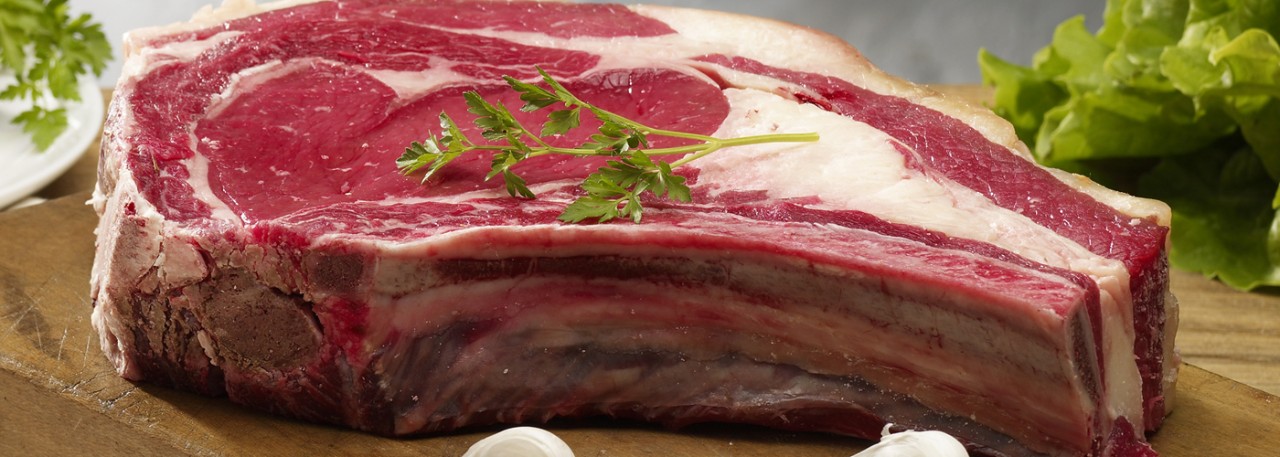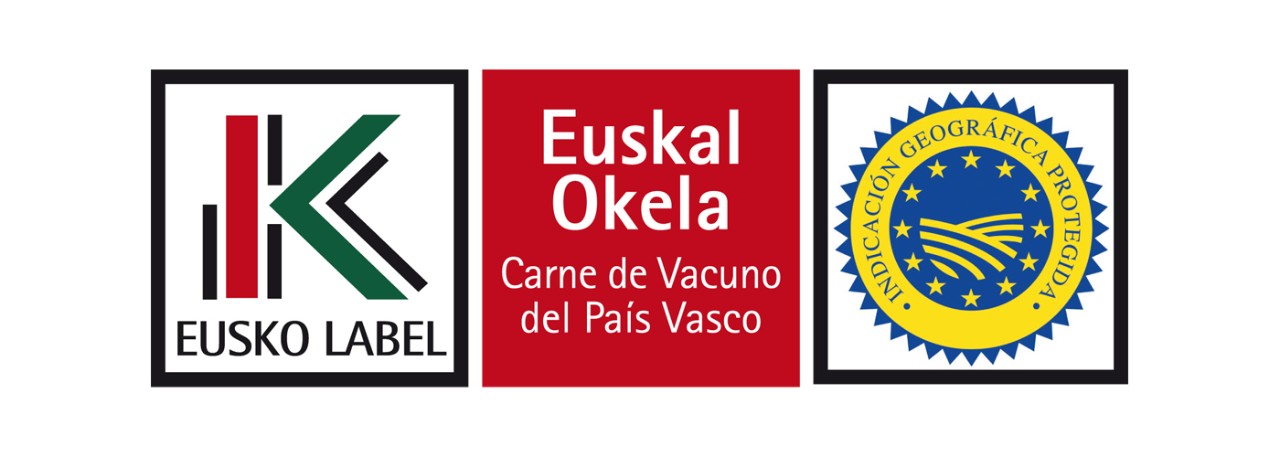.png.transform/rendition-xs/image_image%20(1).png)
Carne de Vacuno del País Vasco PGI
Beef from cattle of the Pyrenees, Limousin, Swiss Brown and Blonde breeds and crossbreeds among them, with the Pyrenees breed and its crossbreeds predominating.
Tasting notes
Beef from cattle of the Pyrenees, Limousin, Swiss Brown and Blonde breeds and crossbreeds among them, with the Pyrenees breed and its crossbreeds predominating.
Other notes
All carcasses must have a pH of six or below, measured 24 hours after slaughter in the long dorsal muscle. The parts and carcasses must mature for seven days.
Production / Processing method
The cattle are reared in the traditional way, with a special focus on conditions that determine their health and wellbeing. They are mostly fed natural forage – fresh or dried grass, hay and straw and, when necessary, authorized complementary feed. The cattle are transported to the slaughterhouse in authorized, registered vehicles, avoiding any unnecessary stress which might affect the quality of the end product.
In the slaughterhouse, the carcasses are bled, dressed, aired, matured and identified in line with the requirements of the Regulatory Council.
Geography / Relief and climate
The Basque Country is mountainous, with a warm Atlantic climate and high rainfall, in excess of 4 ft. The soils are limey and rich in organic matter, making them ideal for growing pastures and forage.
The traditional methods of rearing beef cattle in this Community are based on use of the communal mountain territories for much of the year, and alternating between the valleys and the mountain slopes.
This traditional system is important because it allows the use of natural forage and also helps preserve the landscape and the rural environment.
Regulatory Council
Consejo Regulador de la IGP Carne de Vacuno del País Vasco
Bº de Muntsaratz, 17-A - Torre Muntsaratz
48220 Abadiño (Vizcaya)
Tel: (+34) 946 030 330
Fax: (+34) 946 033 953
euskolabel@euskolabel.net
hazi@hazi.eus
www.euskolabel.net
Sources:
The traditional methods of rearing beef cattle in Basque Country are based on use of the communal mountain territories for much of the year, and alternating between the valleys and the mountain slopes.


- /content/dam/en/icex-foodswines/images/products/fresh-meat/carne-de-vacuno-del-país-vasco-pgi/Carne%20de%20Vacuno%20del%20País%20Vasco%20PGI%20carr1.jpg
- /content/dam/en/icex-foodswines/images/products/fresh-meat/carne-de-vacuno-del-país-vasco-pgi/Carne%20de%20Vacuno%20del%20País%20Vasco%20PGI%20carr2.jpg

Abadiño (Basque Country)
